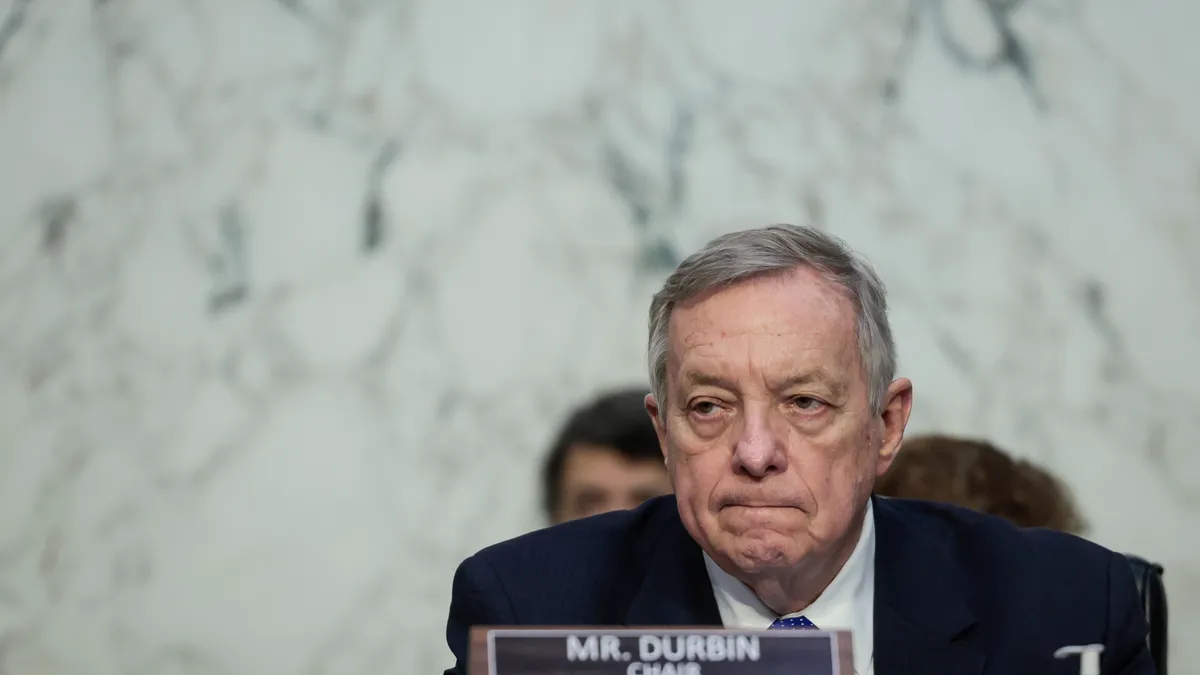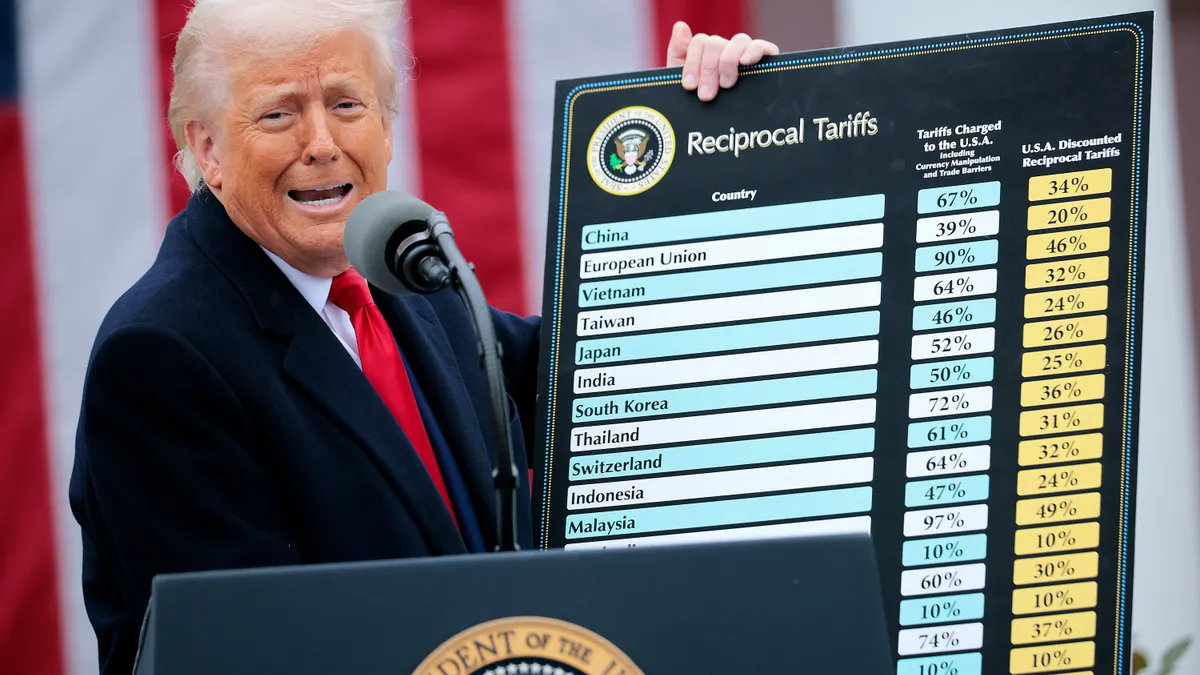U.S. Sens. Dick Durbin and Roger Marshall have found a potential vehicle for passing their legislation aimed at reducing credit card “swipe” fees paid by merchants: the annual bill authorizing defense spending.
The senators last week introduced two amendments to the National Defense Authorization Act, giving them an opportunity to attach their legislation to that annual bill that provides defense funding each year.
That military spending bill often enjoys bipartisan support, as it did earlier this year when the Senate Armed Services Committee voted 23-3 to send the James M. Inhofe National Defense Authorization Act for Fiscal Year 2023 to the full Senate for a vote later this year.
Durbin (D-IL) and Marshall (R-KS) locked arms in introducing a version of the bill earlier this year to inject what they say is more needed competition in a credit card industry dominated by Visa and Mastercard. That bill, called the Credit Card Competition Act of 2022, was introduced in the Senate in July and sent to the Senate Banking Committee for review.
The bill would generally mandate that merchants have access to card networks other than Visa and Mastercard for routing credit card transactions. Durbin successfully won passage of an amendment to the 2010 Dodd-Frank Wall Street Reform and Consumer Protection Act that imposed a similar requirement on debit transactions.
In a Friday press release, the senators said the two card companies process about 83% of general-purpose credit cards in the U.S., with $3.49 trillion transacted through the two companies in 2021. They argue the fees paid by U.S. merchants for use of the networks “are among the world’s highest,” with $77.48 billion in fees paid in 2021.
The senators provided an early argument for the germaneness of the bill to defense funding by noting that military veterans must sometimes pay surcharges at military commissaries to cover payment of the fees. A second amendment they introduced last week calls on the U.S. Defense and Treasury departments to issue a report on how much in surcharges veterans are paying for their credit card use and which companies benefit from those fees.
“These swipe fees inflate the prices that consumers pay for groceries and gas, and, incredibly, veterans are being charged extra for commissary purchases because of these exorbitant fees,” Durbin said in the release emailed to Payments Dive. “With these amendments, we can bring real competition to credit card networks to help reduce swipe fees and hold down costs for Main Street merchants and their customers; and bring transparency to the shameful surcharge fees inflicted upon our veterans,” he added.
A House companion bill to the Credit Card Competition Act of 2022 was introduced last month by Reps. Peter Welch (D-VT) and Lance Gooden (R-TX).
If the legislation wins approval from the Senate Armed Services Committee as an amendment to the military spending bill, it wouldn’t have to be passed the Senate Banking Committee.
Either way, there is no guarantee of passage for the bill. Interest groups representing retailers and merchants, including the Merchants Payments Coalition, are engaged in a fierce battle over the legislation with counterparts, including the Electronic Payments Coalition, representing the card companies and banks. It’s a replay of the same battle that took place more than a decade ago with Durbin’s amendment to the Dodd-Frank Act.
Durbin and opponents of the fees have gained momentum in their crusade with Democrats currently in control of the House and Senate, and a Democrat in the White House who has pledged to push back against monopoly interests in U.S. business. President Joe Biden called for increased enforcement of antitrust laws last year, suggesting there is a need to root out anti-competitive practices.
The political war over credit card fees comes after Visa and Mastercard and their card-issuing bank partners pushed through fee increases earlier this year after holding off during the first couple years of the COVID-19 pandemic. The companies have argued there is plenty of competition in the industry with new digital payment alternatives entering the market in recent years.
Both sides have said the most likely way the legislation could pass, if it does, is as part of a larger piece of legislation, just as the Durbin debit amendment to Dodd-Frank won approval a decade ago.








